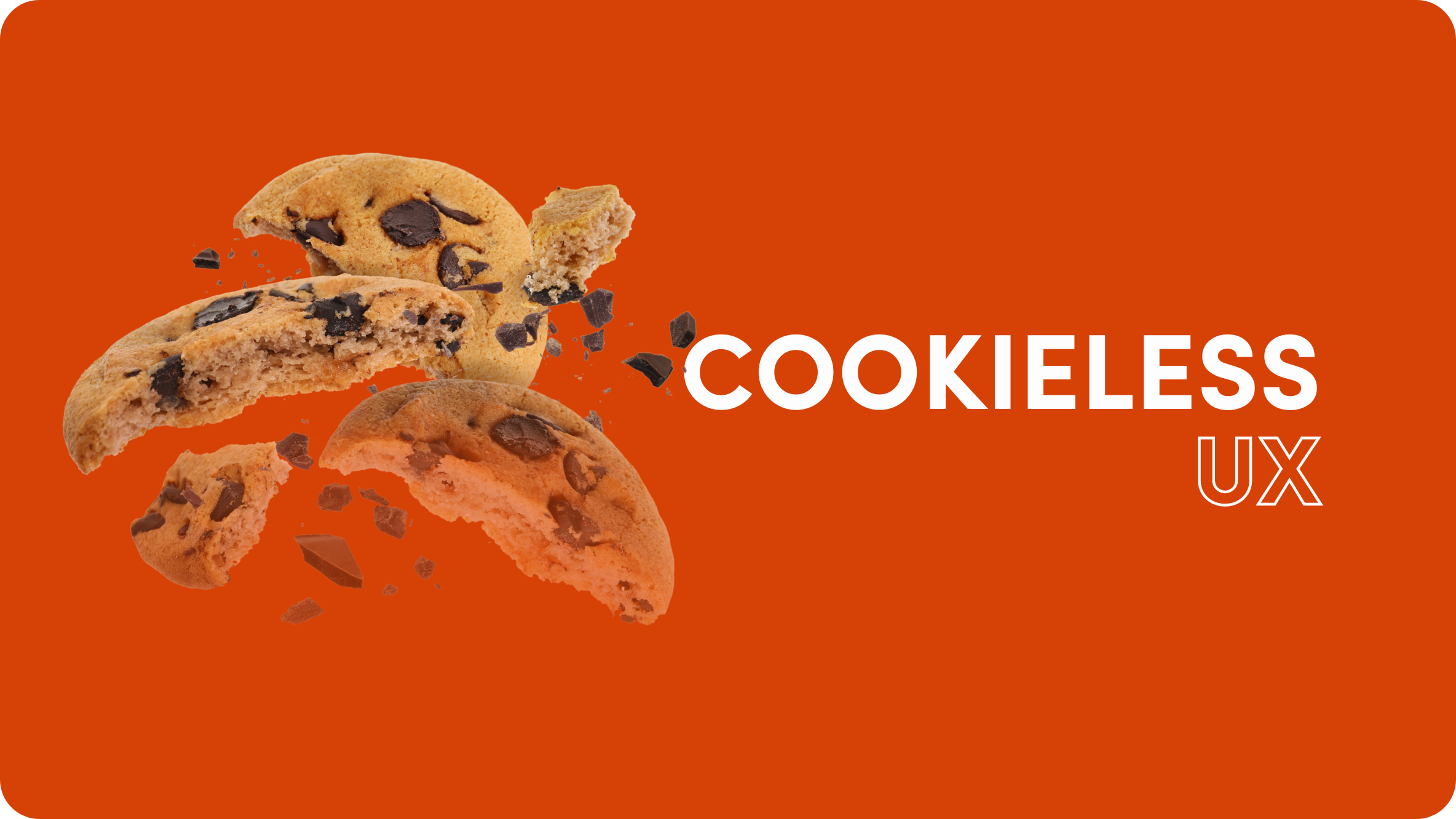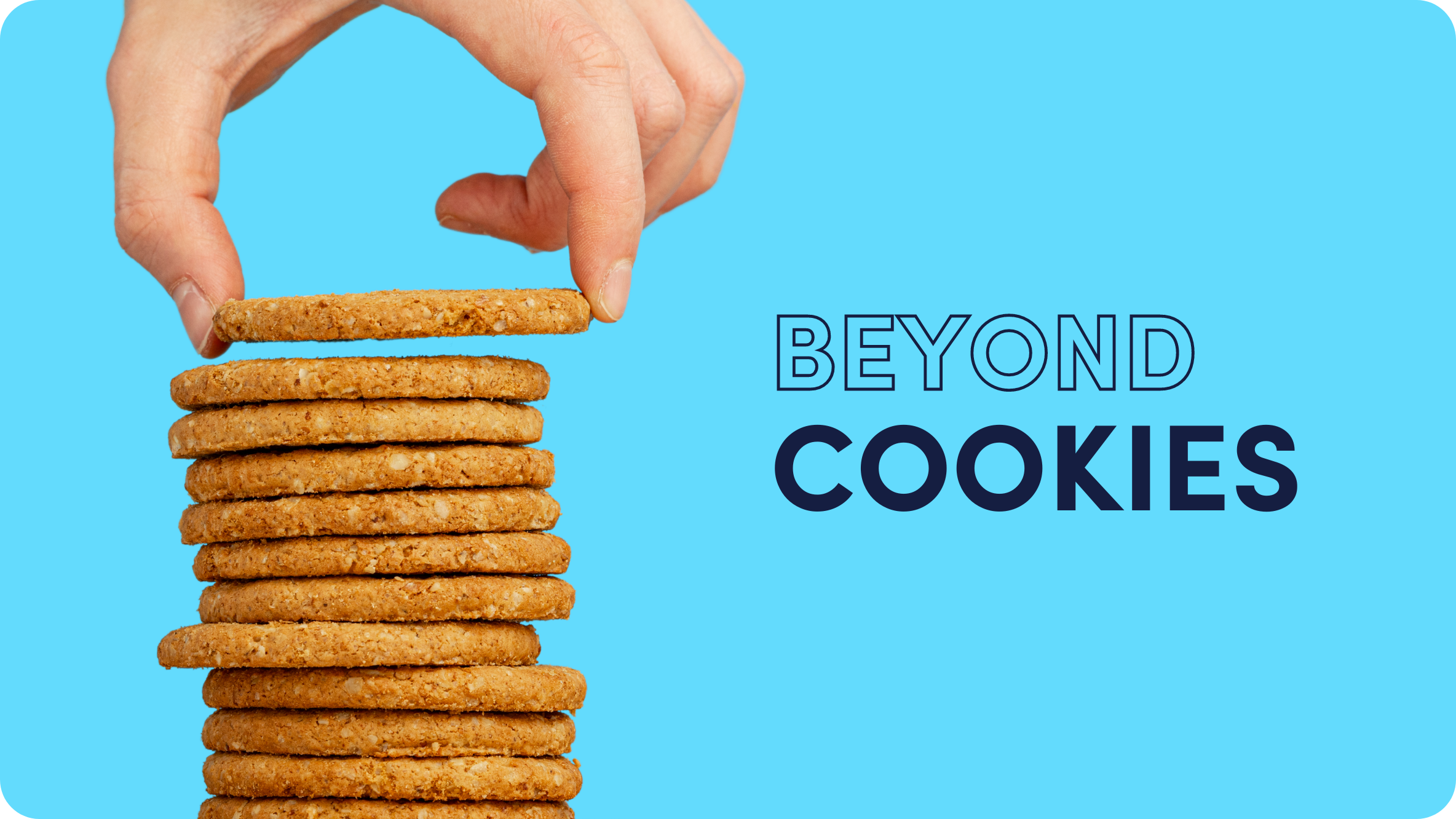Brandformance 101: When Branding and Performance Marketing Collide

Picture it. A weathered man sits in his living room, the sound of birds twittering scoring his silence. In his hands, a battered, old, green Coke bottle.
He twists it from side to side, eyeing it up and down, as if searching for secrets hidden in the bottle-green glass. Then, a realization! The bottle has a cork.
With some effort, he pries the cork out of the bottleneck, scrunching up his face with the effort. Inside, his prize awaits. A note. He tips it out onto his hand, unrolling it to read the faded writing. It’s a note in a bottle, after all. Surely something momentous is written on the paper that made it so far, into a stranger’s hands and home.
The note reads…
Well, wouldn’t you like to know?
That’s exactly what Coke was relying on.
Recently, Coca Cola partnered with celebrated director Bryce Dallas Howard to produce a holiday series on Tik Tok and YouTube. The so-called #TheSantaStories received a high viewership, with engagement totaling almost 500,000 views over the holiday season on Tik Tok alone. From this story-based campaign, Coke saw a 4% spike in sales and a 15% increase in brand recall.
This is the power of brandformance marketing, and today, we’re guiding you through it. Let’s start by defining this new field, then we’ll explore the fundamentals of brandformance, and unearth some recent successful case studies to get you started.
What is Brandformance Marketing?
To begin, let’s dissect the term ‘brandformance’. A combination of ‘branding’ and ‘performance’, it represents a new school of digital marketing that combines brand and performance marketing.
Brand building in isolation focuses on building the brand’s story, creating loyalty, and bridging the divide between company and customer with emotional connection. It’s a long-term strategy, hinging on consistent messaging, tone, and the company’s ability to anticipate its core demographic’s needs. Targeted mostly at ‘awareness’, this strategy fits at the top of the conversion funnel.
Examples of brand-building activities include:
- Creating novel packaging
- Emphasizing distinctive services
- Leaning into creative advertising
- Telling brand-centric stories
On the other hand, performance marketing is a qualitative discipline. Strategies based on performance marketing hinge on the achievement of certain metric-based goals. While performance marketing is a broad term, covering various digital marketing activities, it is mostly associated with paid advertising, or PPC. Brands that run paid ads on digital platforms typically only pay for a specific action or measurable result. For example, they pay for impressions, clicks, or conversions (ie. purchases). Performance marketing is centered mainly around hitting objectives, rather than on building long-term relationships. This gives it a core strength: measurability. For this reason, performance marketing strategies are effective at the conversion stage of the marketing funnel, known as the bottom of the funnel.
Examples of performance marketing activities include:
- Targeted digital campaigns, such as PPC
- Emphasis on actions taken by the customer, such as views, clicks, or conversions
- Relies on third-party ad networks or platforms to run campaigns
In the past, branding and performance marketing have been regarded as separate disciplines that didn’t intersect very much or at all.
Take the Super Bowl commercial as a classic example of a branding activity. These expensive commercial spots are designed to boost brand awareness and to get the audience talking about the brand. There is no way to measure the actual performance of the ad, such as how many people watched the whole ad to the end, or decided to visit the brand’s store or make a purchase after viewing the ad. This is the gap between branding and performance marketing, but it is beginning to close.
With the rise of new adtech approaches on social media platforms like TikTok and native advertising platforms like Outbrain, companies can now blend their brand-building strategies with metric-driven conversion campaigns. That’s brandformance marketing.
Versatile though it is, brandformance marketing is most at home mid-conversion funnel, around the consideration stage. The overlap of emotive brand storytelling and rigorous performance marketing metrics create a powerful duo, one that sits comfortably right at the edge of the conversion milestone.
The Fundamentals of Brandformance Marketing
Alone, brand marketing or performance-based marketing are still effective strategies. In fact, for the past twenty years, performance marketing has occupied the top spot as most digital marketers’ favorite strategy.
However, signs are pointing to brandformance as the way of the future. At the 2022 Cannes Lions International Festival of Creativity, senior marketing executives were surveyed about the issues that were most pressing for them. Twice as many voted for ‘managing the tension between brand and performance marketing’ as any other issue.
Brandformance marketing promises to bridge the gap between the more granular, rigorous approach of performance marketing and brand building’s looser, creativity-centric priorities. They no longer need to fight one another for space. These days, they’re better understood as a dynamic duo, rather than adversaries.
A unified approach to brand building and performance marketing lends itself to several powerful benefits:
Grounding creativity with data
One of the driving forces behind brandformance’s popularity is the ability to run creative branding campaigns and then track their effectiveness with grounded, insightful data points. Robust data analytics help brands harvest deeper insights from how consumers interact with their ads, what engagement patterns they see, and what that might mean for future brand campaigns.
From there, they can pivot their strategies to accommodate peak engagement times as well as understanding which storylines resonate best with their audiences.
Prioritizing brand identity and experience
Campaigns using brandformance tactics benefit from a well-defined, consistent brand identity, such as logos, color schemes, and tone of voice. But it goes way beyond that. Brandformance marketing enables advertisers to put the customer experience with the brand at the forefront, and make it far more effective. What storylines and emotional tonalities do you want to strike? Which creative directions yield the best performance from your data? What kinds of brands experiences and interactions perform best among your target audience? This is where brandperformance truly shines.
Quick optimization with real-time metrics
Brand building is a notoriously hazy activity. It relies on long-term patterns and results rather than short-term optimizations. But by combining branding with performance-based marketing, you can tap into real-time metrics to optimize aspects of a campaign to help its performance right now.
Some brandperformance benchmarks that you can use as guiding KPIs include:
- Brand lift/recall: Measuring how well consumers remember a brand after seeing a campaign.
- Customer acquisition cost (CAC): A staple in performance marketing, it can also be used to measure the impact of brand campaigns on new customer acquisition.
- Cost per Action (CPA): A sharp, effective metric that helps marketers understand how much it costs for a customer to click, convert, or otherwise complete a chosen action.
- Share of Voice (SoV): A broader metric linked to brand building, helping brands understand the breadth of their presence in the market compared to their competitors.
- Click-through rate (CTR): A popular performance metric that can live anywhere in the conversion funnel, helping brands measure interest and willingness to engage.
Emotional connection drives gains
The power of brandformance marketing is that it provides both long-term and short-term benefits. In the short term, brands can create targeted campaigns with defined, capsule-like storylines that center their messaging while encouraging a specific action. In the long term, brands can use insights gained from campaigns to hone their messaging and enhance customer experience. Both sets of gains come from emphasizing stories that truly tug at the hearts of their audience.
Harvard Business Review recently called out four aspects that should be included in this composite brandformance metric: familiarity (how well known the brand is), regard (how much consumers like a brand), meaning (how relevant the brand feels to a consumer’s experience), and uniqueness (how well the brand stands out from competitors).
Brandformance is an evolving field, and it’s down to each marketer to use targeted data points and create a unique composite metric that measures brand equity for their company.
Optimal Platforms for Brandformance Marketing
Outbrain
Outbrain is an online digital network that offers predictive, performance-driven native advertising. Designed to optimize campaigns on the fly with 17+ years of consumer data, Outbrain delivers impactful branding by using attention metrics. This makes it an ideal home for brandformance marketing strategies.
When we talk about attention metrics, we’re talking about measuring:
- Eye-tracking (experimental and less common)
- Viewability
- Time in view
- Dwell time
- Contextual alignment
- Click-through rate
- Scroll depth
Where brandformance is concerned, attention metrics are some of the best insights you can rely on. They’re a grounded, concrete way to measure how much attention a customer is willing to give you, and where their interest lies. This perfectly bridges the gap between brand-building and performance-based insights.
TikTok
TikTok is a sensationally popular social media platform designed to encourage scrolling, community engagement, and connection. It’s a good place for brands to humanize themselves and talk directly to audiences, driving relatability and brand loyalty. It is also a breeding ground for sponsored content in collaboration with affiliate partners.
YouTube
YouTube is a great option for brandformance ads and longer-form content promoted on the brand’s channel. It is an excellent way to tell the story of the company and drive customer retention while seeking to expand your reach with relevant messaging. At the same time, YouTube supports comprehensive performance metrics that allow you to measure view time, demographics, and more.
SEO
This is a lesser-known approach that deserves some attention. Brandformance should incorporate SEO strategies around the name of the brand. This is a powerful way to attract audiences who are specifically searching for your brand or even competitor names. So, make sure to optimize your website and keyword strategy to include search terms that feature your brand name or a variation of it. This helps you gain rankings for your brand name on SERP pages and drives organic traffic to your website.
DRTV (Direct Response TV)
Colloquially known as ‘infomercials’, DRTV relies on storytelling, brand engagement, and emotive connection to drive immediate action. The strategy is creatively based, but incoming customer conversions are easily measurable as campaigns roll out. Though DRTV has been around for a long time, it is still fairly popular among some audiences, especially on cable TV. For some brands, it may be an effective piece of a brandformance marketing strategy.
Demonstrating the Power of Brandformance Marketing
The best way to understand the true impact of a marketing strategy is to see it in the real world. With that in mind, let’s review two recent case studies in which brandformance marketing played the leading role.
Outperforming social and display ads with Outbrain
The leading weight-loss brand WeightWatchers (WW) partnered with Outbrain to increase the reach of its native media campaigns. The focus was generating highly qualified traffic and long-term subscriptions outside of ‘traditional’ channels like social and display.
It was an ambitious goal, relying on a well-developed customer image and powerful creative assets to drive emotional connection. Outbrain began by segmenting the WW audience with interest mapping (a cookie-free method), then building assets designed to emotionally connect with each audience pool.
The next step was measuring engagement and setting up a retargeting strategy to gain more subscriptions. The strategy camped out at the lower end of the conversion funnel, aiming to drive sign-ups with a foundation of positive brand retention.
The results? Excellent. WeightWatchers saw a 3.5 times more efficient Cost per View (CPV) than with social channels, and a whopping 6 times more efficient CPV than display ads. A testament to how balancing brand building and performance marketing can achieve record-breaking results.
Driving community storytelling through TikTok
On the other end of the funnel, Hyundai was seeking an increase in brand awareness ahead of the launch of its new electric vehicle, the IONIQ 6.
The goal was simple: drive brand awareness and video views with a set of diverse, engaging, creator-led video ads running parallel to the Superbowl. They also utilized a TV spot to broaden their strategy and reach more of their audience.
By enticing community members to directly interact with the brand in a positive way, they were able to improve their brand reputation in the modern market. The campaign saw a 3.5% increase in brand awareness, and a 13% increase in ad recall. Overall, this demonstrates that a brandformance approach to advertising is an excellent top-of-funnel strategy.
It appears that whether you’re a high-end vehicle brand, a health-centric business, or the world’s most popular drink vendor, there’s always room to learn something new. Adopting brandformance marketing techniques promises to enrich the digital marketing landscape in the coming years, so there’s only one question to ask:
Do you want to be ahead of the curve, or behind it?
Adopt Brandformance Strategies with Outbrain
Curious about what the evolving discipline of brandformance can do for your brand? Contact Outbrain about creating attention-first native campaigns that tell your brand story and help you achieve measurable performance goals.












